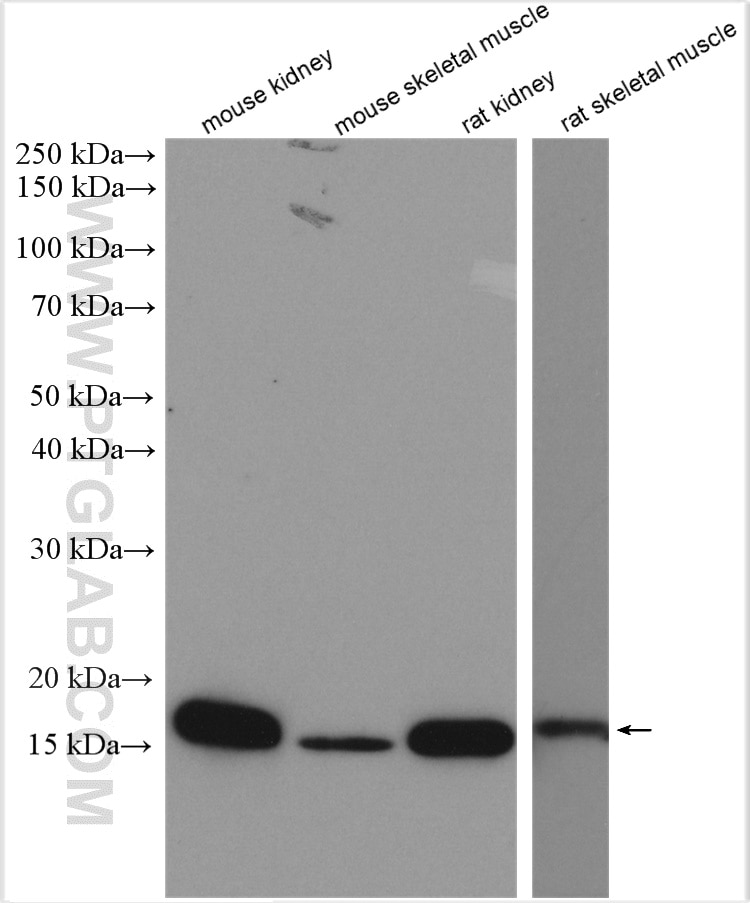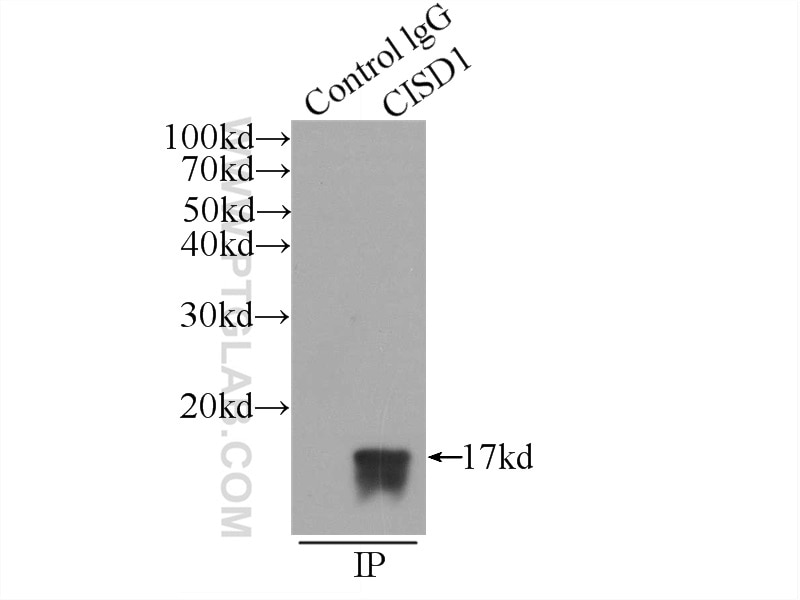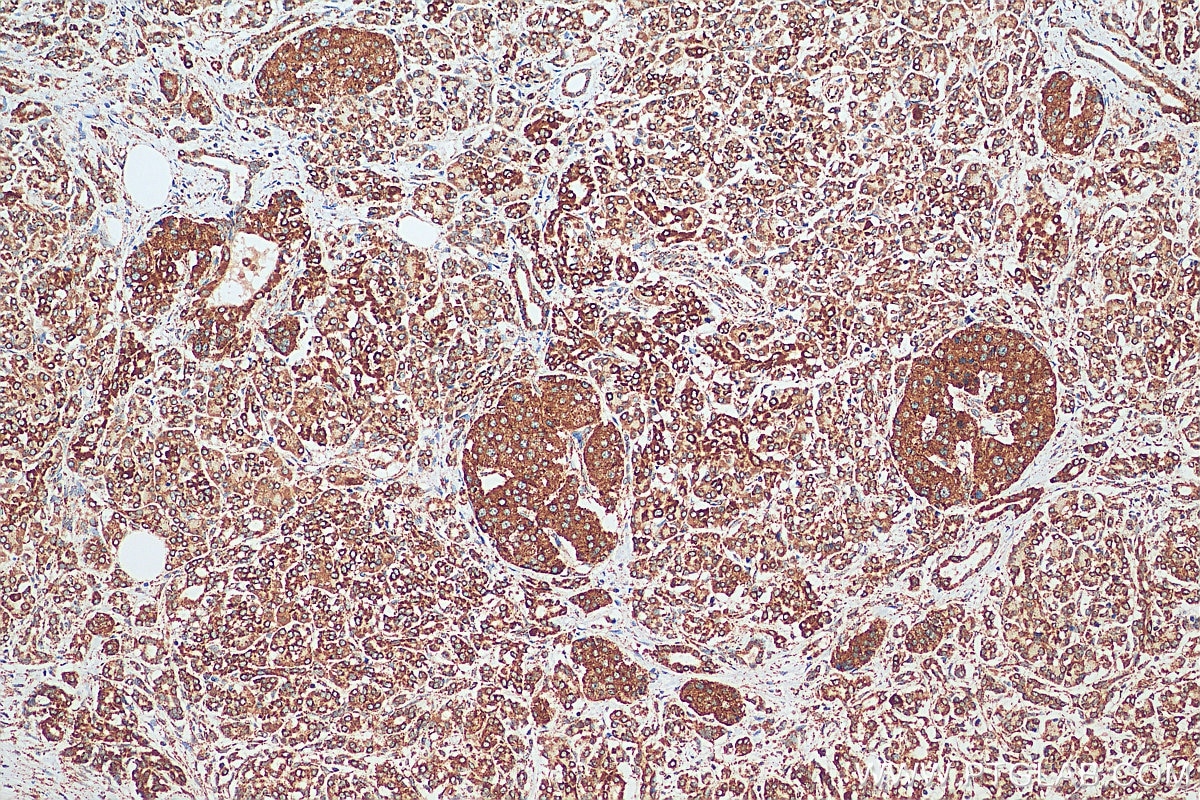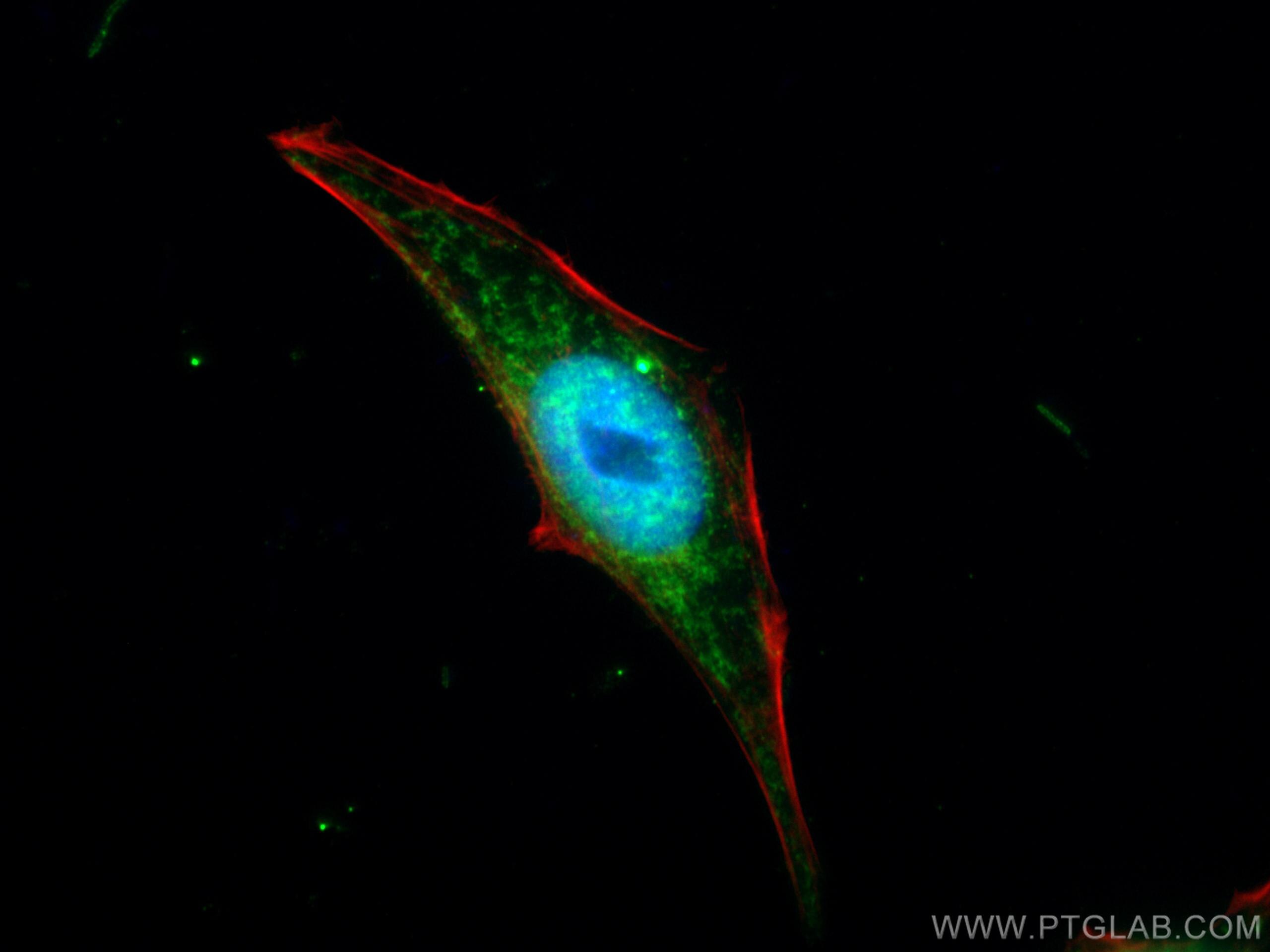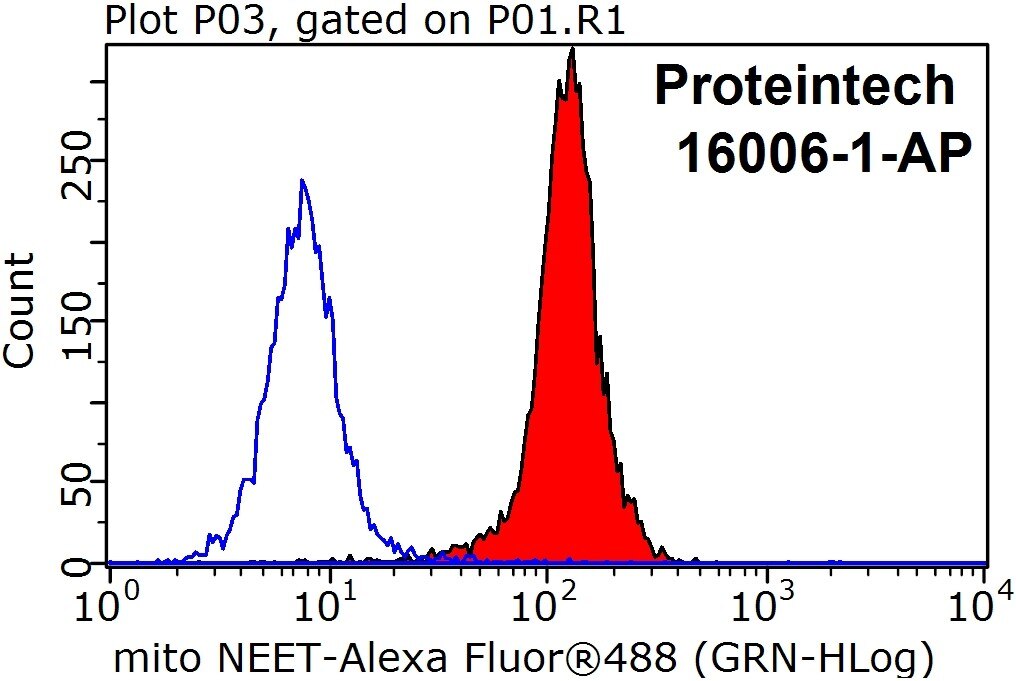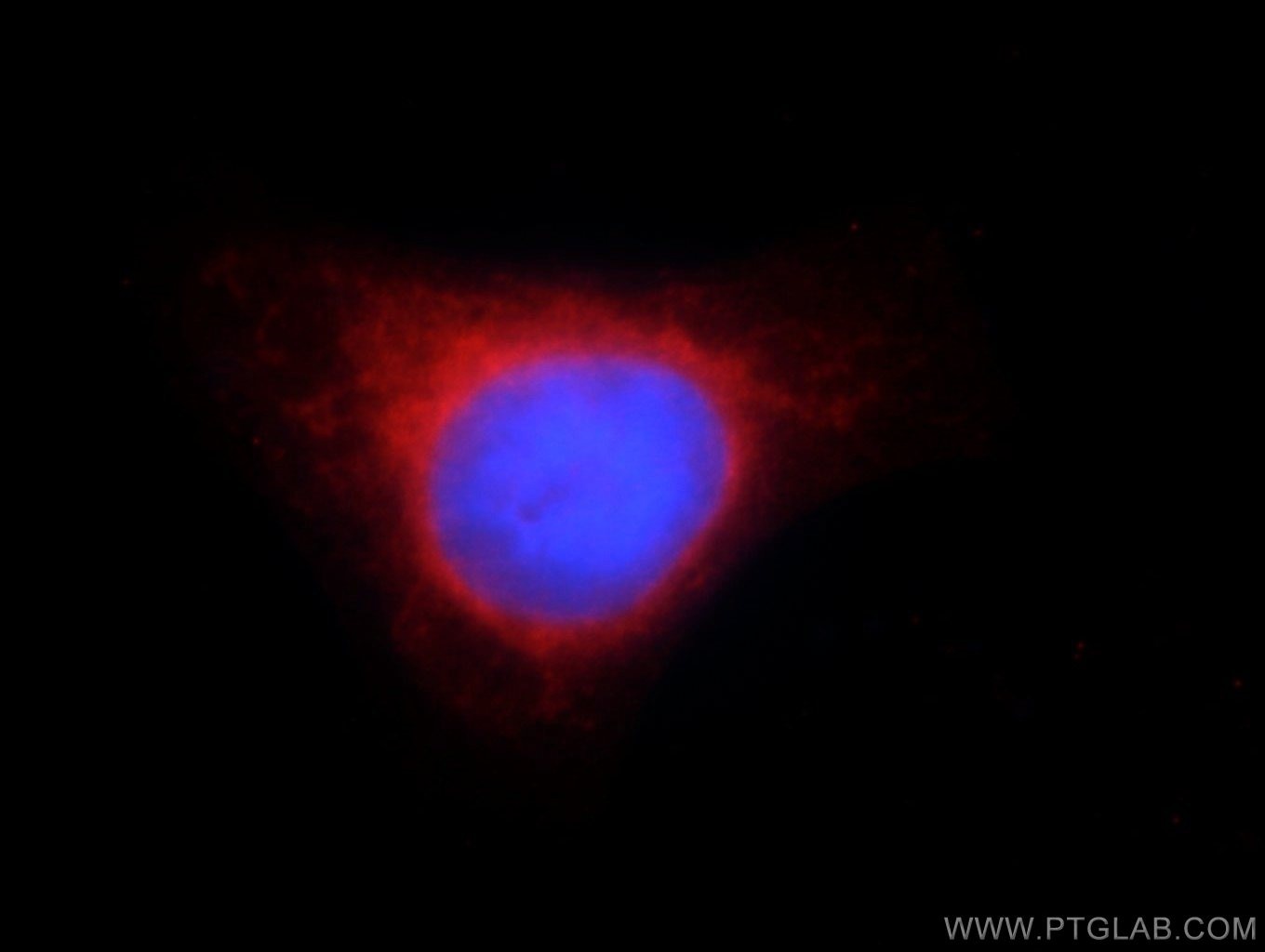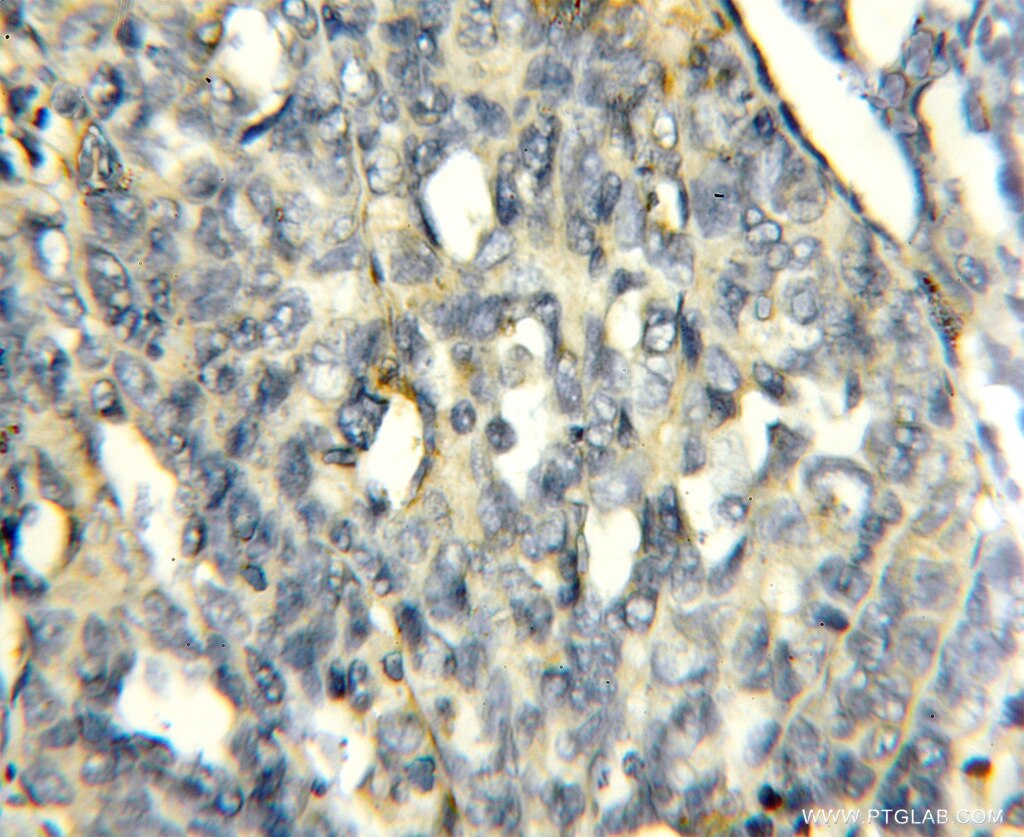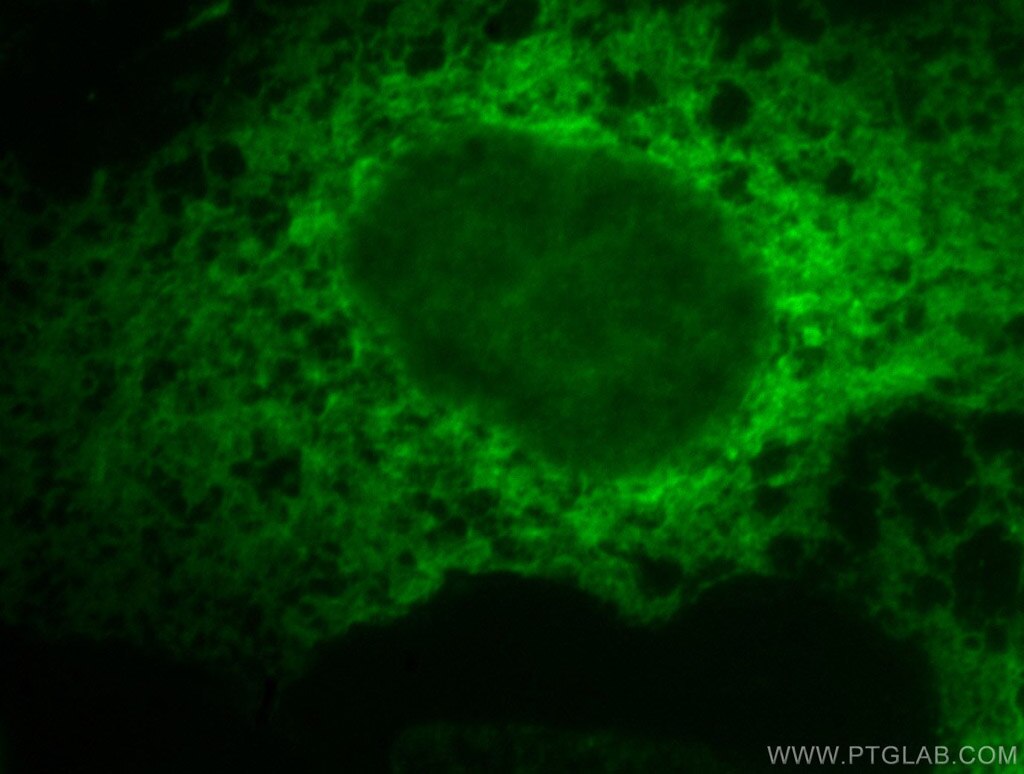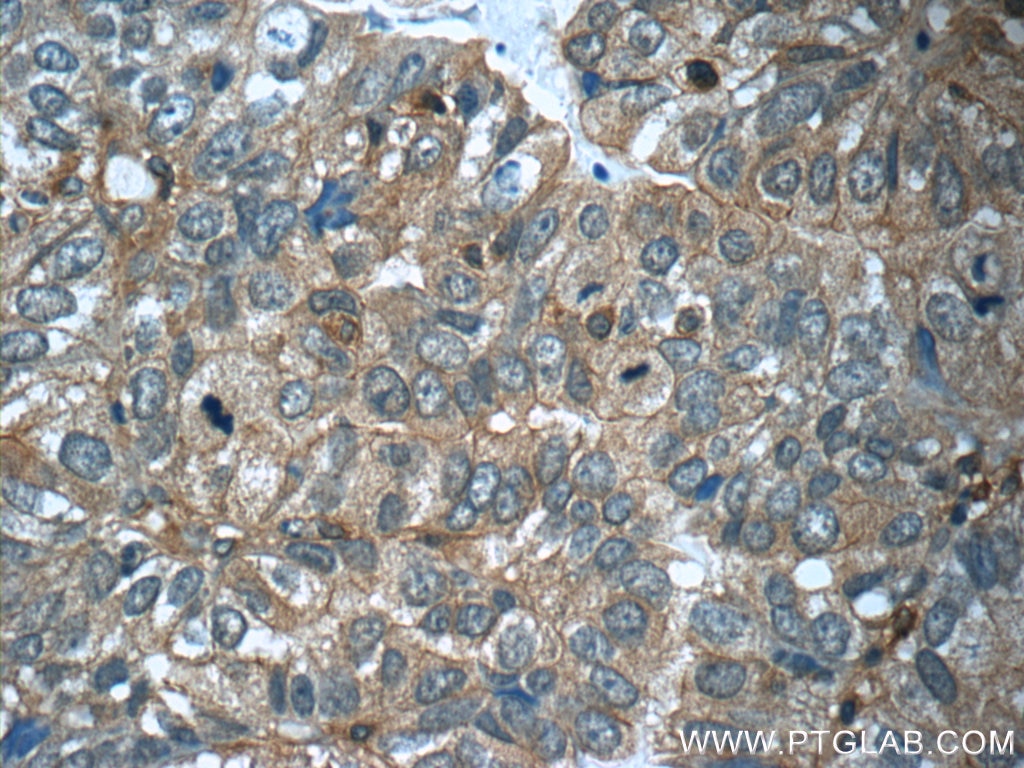- Featured Product
- KD/KO Validated
CISD1 Polyklonaler Antikörper
CISD1 Polyklonal Antikörper für FC, IF, IHC, IP, WB, ELISA
Wirt / Isotyp
Kaninchen / IgG
Getestete Reaktivität
human, Maus, Ratte
Anwendung
WB, IP, IHC, IF, FC, ELISA
Konjugation
Unkonjugiert
Kat-Nr. : 16006-1-AP
Synonyme
Galerie der Validierungsdaten
Geprüfte Anwendungen
| Erfolgreiche Detektion in WB | Mausnierengewebe, Maus-Skelettmuskelgewebe, Rattennierengewebe, Ratten-Skelettmuskelgewebe |
| Erfolgreiche IP | HepG2-Zellen |
| Erfolgreiche Detektion in IHC | humanes Pankreaskarzinomgewebe Hinweis: Antigendemaskierung mit TE-Puffer pH 9,0 empfohlen. (*) Wahlweise kann die Antigendemaskierung auch mit Citratpuffer pH 6,0 erfolgen. |
| Erfolgreiche Detektion in IF | HepG2-Zellen |
| Erfolgreiche Detektion in FC | HeLa-Zellen |
Empfohlene Verdünnung
| Anwendung | Verdünnung |
|---|---|
| Western Blot (WB) | WB : 1:5000-1:50000 |
| Immunpräzipitation (IP) | IP : 0.5-4.0 ug for 1.0-3.0 mg of total protein lysate |
| Immunhistochemie (IHC) | IHC : 1:50-1:500 |
| Immunfluoreszenz (IF) | IF : 1:50-1:500 |
| Durchflusszytometrie (FC) | FC : 0.05 ug per 10^6 cells in a 100 µl suspension |
| It is recommended that this reagent should be titrated in each testing system to obtain optimal results. | |
| Sample-dependent, check data in validation data gallery | |
Veröffentlichte Anwendungen
| KD/KO | See 4 publications below |
| WB | See 33 publications below |
| IHC | See 2 publications below |
| IF | See 3 publications below |
| IP | See 2 publications below |
Produktinformation
16006-1-AP bindet in WB, IP, IHC, IF, FC, ELISA CISD1 und zeigt Reaktivität mit human, Maus, Ratten
| Getestete Reaktivität | human, Maus, Ratte |
| In Publikationen genannte Reaktivität | human, Maus, Ratte |
| Wirt / Isotyp | Kaninchen / IgG |
| Klonalität | Polyklonal |
| Typ | Antikörper |
| Immunogen | CISD1 fusion protein Ag8680 |
| Vollständiger Name | CDGSH iron sulfur domain 1 |
| Berechnetes Molekulargewicht | 108 aa, 12 kDa |
| Beobachtetes Molekulargewicht | 14-17 kDa |
| GenBank-Zugangsnummer | BC007043 |
| Gene symbol | CISD1 |
| Gene ID (NCBI) | 55847 |
| Konjugation | Unkonjugiert |
| Form | Liquid |
| Reinigungsmethode | Antigen-Affinitätsreinigung |
| Lagerungspuffer | PBS mit 0.02% Natriumazid und 50% Glycerin pH 7.3. |
| Lagerungsbedingungen | Bei -20°C lagern. Nach dem Versand ein Jahr lang stabil Aliquotieren ist bei -20oC Lagerung nicht notwendig. 20ul Größen enthalten 0,1% BSA. |
Hintergrundinformationen
MitoNEET, also named CISD1, belongs to a previously uncharacterized ancient family of proteins for which the hallmark is the presence of a unique 39 amino acid CDGSH domain. It is a single-pass type III membrane protein, located in mitochondrion outer membrane and may play a role in regulating maximal capacity for electron transport and oxidative phosphorylation. MitoNEET is a recently identified drug target for a commonly prescribed diabetes drug, Pioglitazone. This antibody recognizing MitoNEET (calculated 12 kDa) as a 17 kDa protein may be due to its posttranslational modification or metal binding activity.
Protokolle
| Produktspezifische Protokolle | |
|---|---|
| WB protocol for CISD1 antibody 16006-1-AP | Protokoll herunterladen |
| IHC protocol for CISD1 antibody 16006-1-AP | Protokoll herunterladen |
| IF protocol for CISD1 antibody 16006-1-AP | Protokoll herunterladen |
| IP protocol for CISD1 antibody 16006-1-AP | Protokoll herunterladen |
| FC protocol for CISD1 antibody 16006-1-AP | Protokoll herunterladen |
| Standard-Protokolle | |
|---|---|
| Klicken Sie hier, um unsere Standardprotokolle anzuzeigen |
Publikationen
| Species | Application | Title |
|---|---|---|
Cell Metab Basal Mitophagy Occurs Independently of PINK1 in Mouse Tissues of High Metabolic Demand. | ||
Mol Cell Quantitative proteomics reveal a feedforward mechanism for mitochondrial PARKIN translocation and ubiquitin chain synthesis. | ||
Mol Cell Dynamics of PARKIN-Dependent Mitochondrial Ubiquitylation in Induced Neurons and Model Systems Revealed by Digital Snapshot Proteomics. | ||
Mol Cell Global Landscape and Dynamics of Parkin and USP30-Dependent Ubiquitylomes in iNeurons during Mitophagic Signaling. | ||
Sci Adv AMPK/ULK1-mediated phosphorylation of Parkin ACT domain mediates an early step in mitophagy. |
